Vision Saver Formula
4 in stock
- Effective in protecting the eyes
- Decrease the likelihood of developing cataracts
- Helps the eyes to better adapt to both bright and low lighting
- Reduces the risk of developing macular degeneration many eye related problems
>>>Read More
23,510CFA
4 in stock
Detailed Product Description / Supplement Facts
Vision Saver Formular Benefits
- Vision saver formula effective in protecting the eyes
- Vision saver formula decreases the likelihood of developing cataracts
- Vision saver formula helps the eyes to better adapt to both bright and low lighting
- Vision saver formula reduces the risk of developing macular degeneration many eye related problems
As we age, our vision suffers from exposure to natural and unnatural elements in our environment, such as bright light, free radicals, first and second hand smoke. It is also affected by our genetic disposition for eyesight. Many of the diseases associated with deteriorating vision are age-related. They include macular degeneration, cataracts, retinopathy and glaucoma, to name a few.
Age-related macular degeneration (AMD) affects approximately 13 million people in this country and is a primary cause of new blindness for Americans over the age of 65. Macular degeneration is a disease, which affects the retina, gradually causing vision loss. A breakdown between the retina and the choroids results in degeneration.
The first symptom of macular degeneration is usually blurred central vision or a large central blind spot. There is no cure, but laser surgery during the early stages of the disease may slow its progression. Risk factors for macular degeneration include advancing age along with genetic predispositions, arteriosclerosis, hypertension and smoking.
In the last decade or so, there is increasing research that oxidative factors and free radical damage may play an important role in the development of AMD. It has been postulated that treatment with high levels of antioxidants and other nutrients may slow down and possibly reverse some of the effects of macular degeneration.
In a study published in the Archives of Ophthalmology from 1988, zinc was found to have some beneficial effect in the treatment of macular degeneration. In a subsequent study published in Archives of Ophthalmology from 1994, the data suggested a protective effect for AMD with high levels of vitamin E along with an antioxidant index composed of ascorbic acid, vitamin E and beta-carotene.
Another study published by Seddon in JAMA (1994) indicated that certain carotenoids lowered the risk of AMD by 43%, those specific carotenoids being lutein and zeaxanthin. The most dramatic effect was noted with lutein. Those people taking approximately 6 mg of lutein per day had an amazing 57% lower risk for AMD when compared to those whose consumption was lower (approximately 0.5 mg per day).
Bilberry extract has been utilized for many years in Europe for the treatment of various eye conditions, with some studies indicating that it may have beneficial effects for various types of retinopathy, including diabetic retinopathy, retinitis pigmentosa and macular degeneration. Additional nutrients that have been studied and may have benefit for macular degeneration include rutin, flavanoids, taurine and magnesium.
Cataract also seems to be affected by oxidation. Cataracts develop when protein deposits form on the lens of the eye, clouding vision. Common symptoms of cataracts include blurred vision, glare, light sensitivity, frequent eyeglass prescription changes, double vision in one eye, the need for brighter light to read, poor night vision, and the appearance of faded or yellowed colors. Cataracts are extremely common and happen with most people as they age. They appear more frequently in smokers and those with diabetes.
Several epidemiologic studies indicated that patients with the lowest levels of vitamins C, E, and carotenoids in their blood were more likely to suffer cataract formation. In one study published in 1997, in a large group of nurses ages 56 to 71, those nurses with the highest intake of vitamin C had a 77% lower prevalence of early lens opacities and an 83% lower prevalence of moderate cataracts compared to women who did not use vitamin C supplementation.
A diet rich in antioxidants (Vitamin E and Vitamin C especially) may help prevent or delay the formation of cataracts, as oxidative damage appears to be a cause of their development.
Glaucoma is the name for a group of diseases that can lead to optic nerve damage, ultimately resulting in blindness if not treated. More than three million Americans suffer from glaucoma. Often, glaucoma has progressed dramatically before it is noticed. The best way to detect early glaucoma symptoms is through regular eye exams and a test to determine how much pressure is being exerted on the eye.
The first noticeable symptom of glaucoma is usually “tunnel vision” – a lack of vision of items that are not directly in front of the eyes. While not curable, glaucoma can be treated via daily medication, which helps lower pressure in the eye, laser surgery to drain built-up fluid, or conventional surgery creating a new opening from which fluid can drain. Several nutrients have been shown to be of value in glaucoma, including magnesium, alpha lipoic acid, vitamins C and B12.
Vision Saver Formula Nutrient Facts and Recommendations:
Since oxidative damage of the eye can cause macular degeneration and/or cataracts, taking antioxidants may lower the occurrence of these diseases. People with high levels of Vitamin C, Vitamin E, and Selenium appear to have a 70% lower risk of developing macular degeneration.
Vitamin C is the most commonly found antioxidant in the eyes. Since levels of Vitamin C appear to decrease with age, supplements are recommended, and appear to decrease the likelihood of developing cataracts. It also reduces elevated pressure in the eye. It must be taken in large doses – often up to 20 grams daily – and is not a cure for glaucoma.
Lutein, an antioxidant found in spinach and kale, works extremely well in protecting the retina against sunlight damage. Supplementation with 6 mg of Lutein daily may decrease the occurrence of macular degeneration by more than 50%
Zinc is needed by the retina to create enzymes needed for vision. 80 mg of Zinc daily may decrease vision loss rate in patients with macular degeneration.
Bilberry, which is similar to blueberries, is high in anthocyanosides, which protect they eye’s lens from oxidative damage. It also helps the eyes to better adapt to both bright and low lighting. Bilberry contains compounds which act as antioxidants in the retina, making it a possible preventive measure for macular degeneration. It also strengthens capillaries in the retina and reduces hemorrhaging.
B-Complex vitamins also appear effective in protecting the eyes. Vitamin B2 deficiency has been linked to the development of cataracts. When Vitamins B2 and B3 are taken daily, the incidence of cataracts decreases.
Quercetin helps to block the accumulation of sorbitol in the eye, and is especially helpful in the prevention of cataracts in patients with diabetes.
Vitamin A, a major source of Beta-carotene, has also been shown to reduce the risk of cataracts. Lutein, a similar nutrient, acts in the same manner.
Alpha-lipoic acid, taken in a dose of 150 mg daily for 30 days, has been shown to improve vision in patients with glaucoma.
PRESENTATION: box of 60 capsules
| Serving Size: 1 Serving Per Pack: 60 | ||
| Ingredients | Dosages | % daily values |
| Vitamin A (beta carotene) | 25000 IU | 500 |
| Vitamin C (ascorbic acid) | 500 mg | 833 |
| Vitamin E (di-alpha acetate tocopherol) | 400 mg | 1 333 |
| Vitamin B2 (riboflavin) | 50mg | 2941 |
| Vitamin B3 (niacin) | 250mg | 50 |
| Zinc | 80mg | 533 |
| Selenium | 1 00 mcg | 1 43 |
| Copper | 1 mg | 50 |
| Alpha lipoic acid | 1 50mg | |
| Quercetin | 1 00mg | |
| Lutein | 1 0mg | |
| Bilberry extract (std to 25% anthocyanosides) % | 1 0 mg | 25 |
| Other ingredients: gelatin, silicone dioxide, magnesium stearate | ||
| Weight | 91 g |
|---|
Based on 0 reviews
Be the first to review “Vision Saver Formula” Cancel reply
Related products
-
All Products, Special Products
Roots Caps
Rated 2.40 out of 5(5)- Correct erectile dysfunction by increasing the ability to have and sustain a good erection during sexual acts
- Significantly increase sexual desire without side effects or dependencies
- Provides better health and physical energy to support personal relationships and intimacy.
- Increase blood flow to the genitals.
- Boosts energy, libido and sexual thoughts.
>>>Read More
SKU: n/a -
All Products, Special Products
Serenity Panic Attack Relief
0 out of 5(0)- SERENITY PANIC ATTACK RELIEF
- The combination of Whey protein with your diet promotes the loss of weight
- Cardiovascular health: Whey protein lowers high blood pressure by inhibiting the activity of the angiotensin-converting enzyme
- Cancer: Whey protein can increase the action of enzymes that provide anti-inflammatory support and anti-tumor activity
- Diabetes: Whey protein is low in carbohydrates and fats and contains more quality protein than other protein sources
- SERENITY PANIC ATTACK RELIEF
- promotes muscle formation and maintenance and can help with maintain strong and healthy bones.
- HIV/AIDS and Immunity: The addition of a dietary supplement in amino acids can be supportive if digestion is compromised. It is a very easy to use protein mixture digest by people living with HIV/AIDS.
>>>Read More
SKU: n/a -
All Products, Special Products
Turmeric Curcumin 2000mg
0 out of 5(0)- Tumeric Curcumin is an Anti cancer effect
- Possesses significant anti-inflammatory activity in acute as well as in chronic models of inflammation
- Curcumin is known to possess potent anti-arthritic properties.
- Suppress the growth of tumor cells through many different pathways
- Reduces Serum Cholesterol and Lipid Peroxide Levels
- Curcumin has been shown to have antidepressant effects.
- Reduce hay fever symptoms such as sneezing, itching, runny nose and congestion.
- Taking turmeric by mouth might reduce itching that is caused by various conditions.
- Boost immune function.
>>>Read More
SKU: n/a

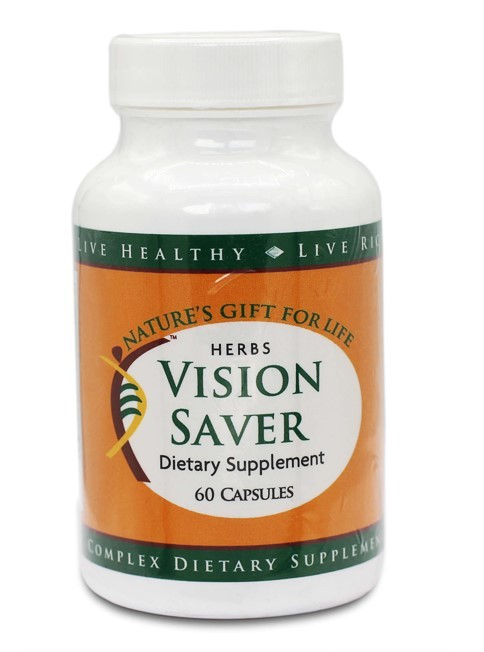
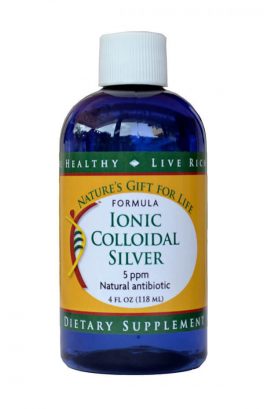
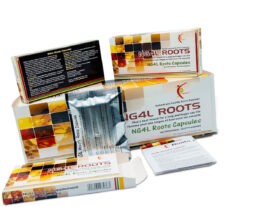
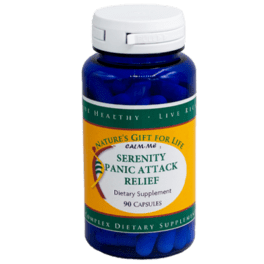
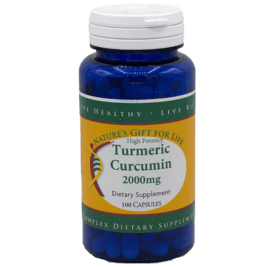
There are no reviews yet.